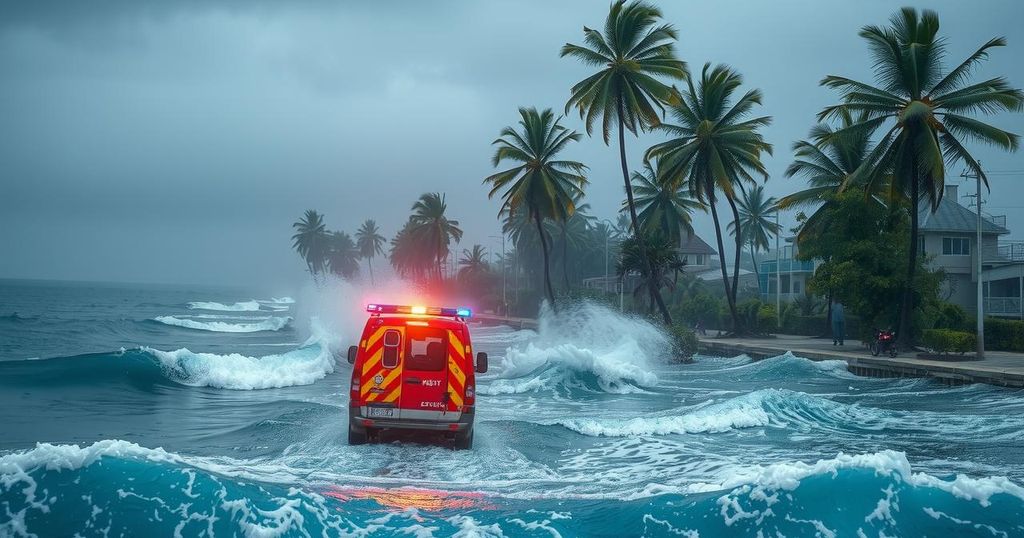Mozambique’s Humanitarian Crisis: Food Insecurity and Displacement Amidst Conflict
Mozambique is currently facing a complex emergency with 2.8 million individuals at risk of acute food insecurity, exacerbated by El Niño-induced drought, flooding, and violent conflict in Cabo Delgado Province. More than 710,000 are internally displaced, primarily due to violence, while humanitarian assistance is urgently needed by 2.3 million people across the country. The situation necessitates immediate responses from international and local organizations to support affected populations.
As of August 2024, Mozambique is experiencing a complex humanitarian crisis exacerbated by various factors, including El Niño-induced drought, flooding, and ongoing conflict. Currently, 2.8 million individuals are facing levels of acute food insecurity categorized as Crisis—IPC 3—or worse. The situation is precarious, particularly in central and southern regions where food security has sharply deteriorated. At the same time, there are an estimated 2.3 million people requiring humanitarian assistance across the country, as acknowledged by the United Nations in January 2024.
Conflict in northern Mozambique, particularly in Cabo Delgado Province, has intensified, leading to a rise in violent incidents. Between May and September 2024, non-state armed group (NSAG) activities have not only caused fear and disruption but have also resulted in significant displacement. Currently, over 80 percent of the approximately 710,000 internally displaced persons (IDPs) were forced to flee due to violence, while the remainder has been impacted by natural disasters. Furthermore, there are approximately 611,000 individuals who have returned to their areas of origin, as reported by the International Organization for Migration (IOM).
The confluence of these crises presents substantial challenges for humanitarian efforts in Mozambique. The heightened insecurity coupled with the adverse weather conditions has a severe impact on the population’s ability to secure adequate food and basic resources. International and local organizations are mobilizing to respond to these urgent humanitarian needs and provide assistance to the affected communities.
The ongoing humanitarian crisis in Mozambique is primarily driven by a combination of environmental and social factors. The country has been grappling with the repercussions of El Niño, which has resulted in erratic weather patterns, including prolonged droughts in some areas and excessive flooding in others. This climatic instability has significantly disrupted agricultural activities, leading to a direct impact on food security. Additionally, armed violence from non-state actors has increased in parts of northern Mozambique, notably in Cabo Delgado, where escalating conflicts have led to mass displacements and a deterioration in living conditions for those affected. As of mid-2024, reports indicate that more than two million residents are in urgent need of humanitarian aid, underscoring the extensive nature of the crisis. The international community, alongside local organizations, continues to assess the situation and respond to the growing humanitarian demands.
The situation in Mozambique remains dire, with millions facing acute food insecurity largely due to intertwined challenges of climate-induced disasters and violent conflict. Immediate and coordinated humanitarian responses are essential to mitigate the impact of these crises on the population. As conditions continue to evolve, it is crucial for both governmental and non-governmental organizations to prioritize affected communities, ensuring that aid efforts are comprehensive and effectively address the varied needs of vulnerable individuals.
Original Source: reliefweb.int




Post Comment